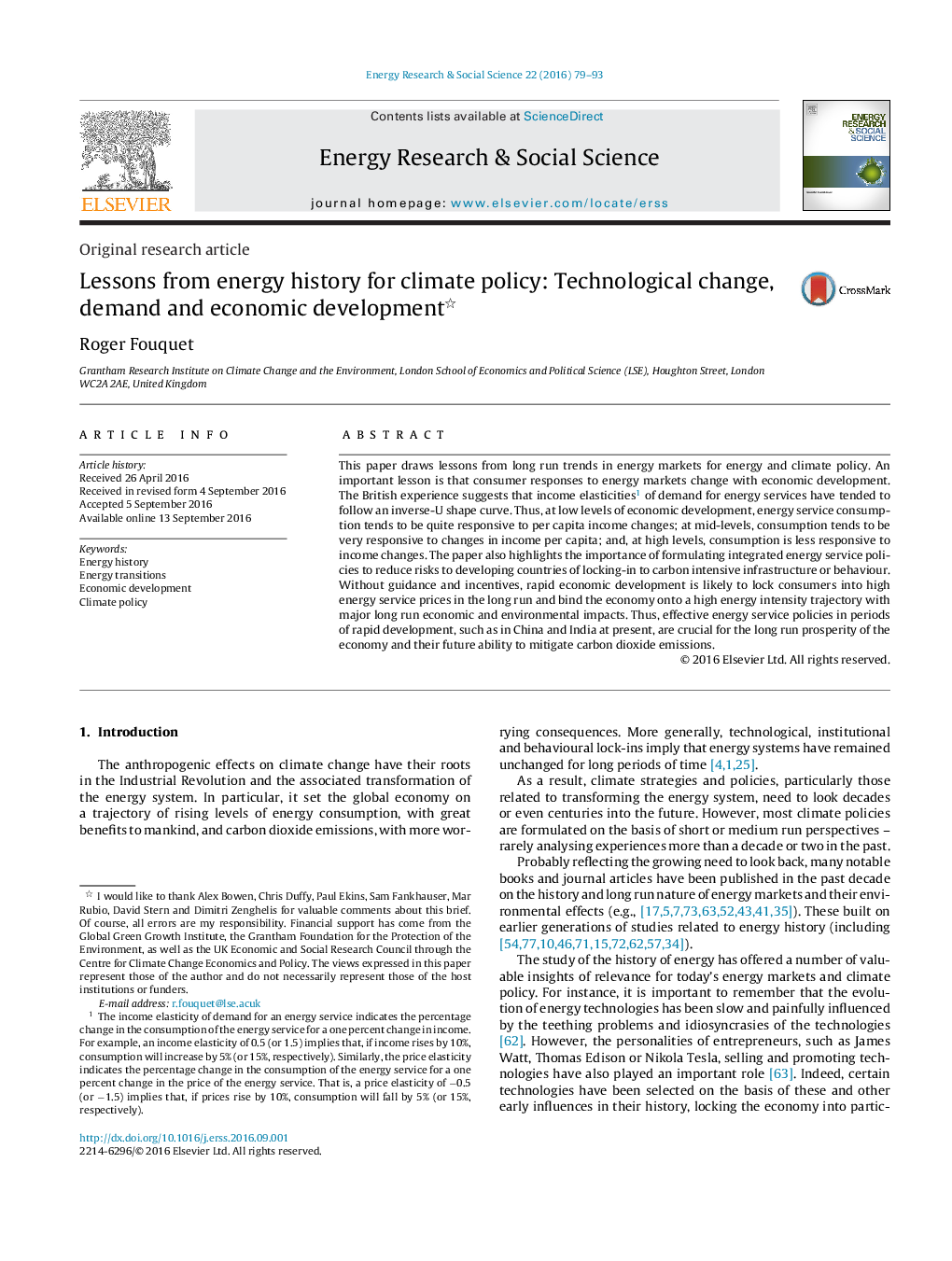| Article ID | Journal | Published Year | Pages | File Type |
|---|---|---|---|---|
| 6464182 | Energy Research & Social Science | 2016 | 15 Pages |
This paper draws lessons from long run trends in energy markets for energy and climate policy. An important lesson is that consumer responses to energy markets change with economic development. The British experience suggests that income elasticities1 of demand for energy services have tended to follow an inverse-U shape curve. Thus, at low levels of economic development, energy service consumption tends to be quite responsive to per capita income changes; at mid-levels, consumption tends to be very responsive to changes in income per capita; and, at high levels, consumption is less responsive to income changes. The paper also highlights the importance of formulating integrated energy service policies to reduce risks to developing countries of locking-in to carbon intensive infrastructure or behaviour. Without guidance and incentives, rapid economic development is likely to lock consumers into high energy service prices in the long run and bind the economy onto a high energy intensity trajectory with major long run economic and environmental impacts. Thus, effective energy service policies in periods of rapid development, such as in China and India at present, are crucial for the long run prosperity of the economy and their future ability to mitigate carbon dioxide emissions.
